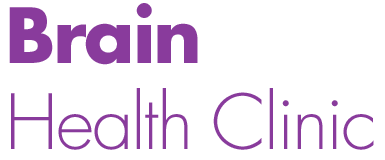
During Sacramento’s shelter-in-place order due to the COVID-19 pandemic, many people are rightly feeling more stress than usual. Even if stress is usually not a concern for you, a sense of confinement, fear of the unknown, and being in close quarters with others may lead to anxiety and unfamiliar feelings of depression.
In an earlier article, we emphasized the benefits of neurofeedback for reducing stress and anxiety. Even with this technological approach to improving brain function, it is important for the patient to follow-up with stress-reduction activities at home. And since almost everyone is at home right now, it is very important to gain a sense of control by taking advantage of all the options available to us. One of these options is engaging in regular exercise, an allowance that many people are wisely “exercising” in our neighborhoods.
Exercise Benefits Not Just Physical
It’s a given that exercise leads to gains in strength and endurance, advantages readily seen in those with an exercise regimen. In addition, exercise brings benefits to mental health. This is partially due to a hormone reduced by mild to moderate exercise and another hormone increased by exercise.
First, mild to moderate exercise reduces the level of cortisol in the body. Cortisol is the “stress hormone,” so-called because it is involved in the “fight or flight” response. Cortisol increases blood pressure and heart rate, an especially worrisome response in patients with heart or arterial diseases. Simply walking on a regular basis (Ideally daily) for twenty to forty minutes is sufficient to see improvement, according to some studies. Intense exercise, however, may actually increase cortisol levels. Here we can define “intense” as more than 60% of your maximum possible effort.
Second, exercise increases the body’s production of its own opioids, the endorphins. In general, intense, vigorous exercise is considered responsible for the greatest endorphin response from the body. The benefit of endorphins, though, is that like other opioids they reduce sensations of pain. And endorphins also elevate the mood and generate a sense of optimism. Therefore, encouraging endorphin production via exercise is very useful for reducing chronic pain and depression.
But if intense exercise is necessary, that seems unlikely in the case of someone with lower back pain or intense depression. It also may present health risks for patients with heart disease. Fortunately, studies also show endorphin release and pain reduction with milder forms of exercise. For example, performing core exercises to strengthen the lower back are sufficient to create an endorphin response. And moderate water exercise during pregnancy also increases the endorphins in the blood. So the vigorous activity associated with a “runner’s high” is not necessarily required to take advantage of the body’s own opioids, endorphins.
We Are Here to Help
The Brain Health Clinic combines the benefits of brain study and technology, psychology and the principles of wellness and healthy living to produce results for our patients. As an essential provider of health services, our clinic remains open during the COVID-19 shutdown. During this period, we continue to put the safety of our clients and staff first, heeding the recommendations of the CDC. All surfaces and equipment are cleaned after each patient and our existing protective measures for conducting neurofeedback ensure a sterile environment. For more information or to schedule an appointment, contact us by phone or online.
Always consult with your medical doctor before beginning any new exercise regimen, especially if you were not exercising previously.
